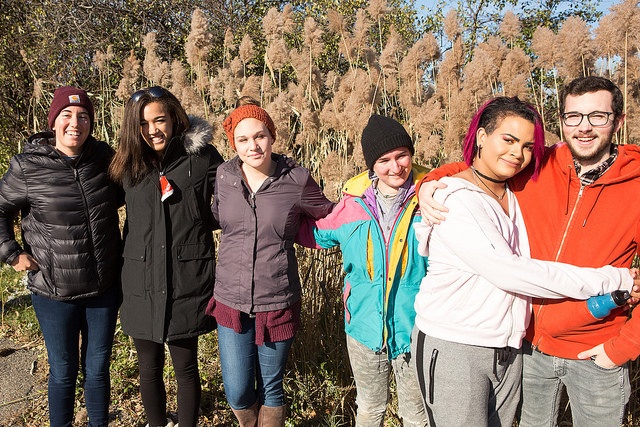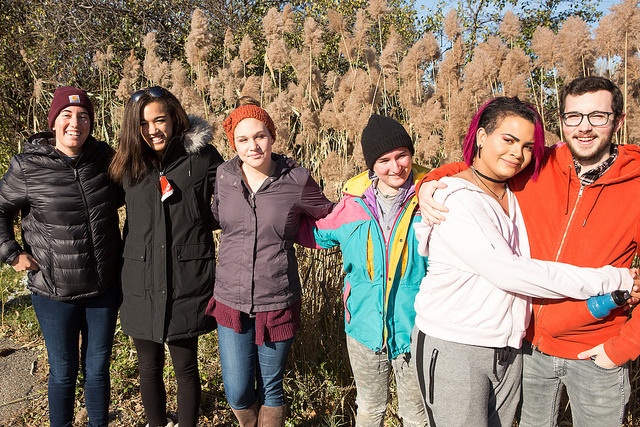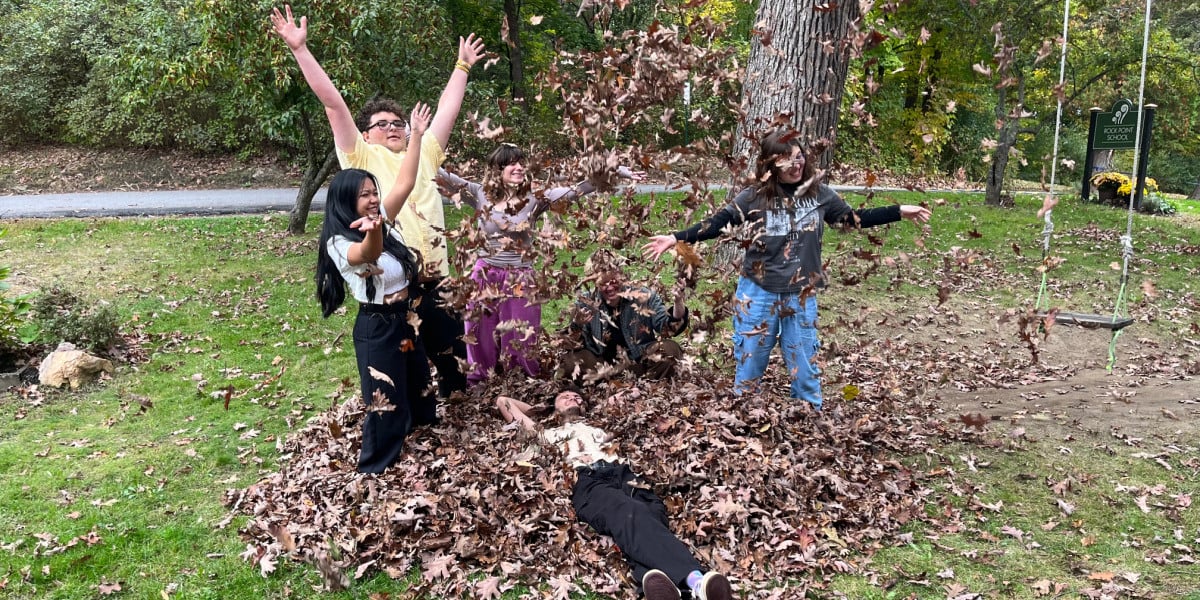Small is Beautiful: Education as if Every Student Really Mattered
In the small, beautiful, lakeside community of Burlington, there are both the advantages of a city — public transportation, rich cultural...


The other day I was helping a student prepare for our Thanksgiving service, when we started talking about what he was grateful for in his life. “I’m grateful I’m accepted for who I am here,” he said with a shrug. While he did not know it, his statement stayed with me all day. I am so grateful to work in a community of students who are inclusive and kind to one another, and I probably don’t tell them that enough. Our conversation reminded me of the importance of practicing gratitude in our daily lives, not just when the holiday rolls around.
In the hustle and bustle of work or school, it is easy to forget about the little things we can appreciate each day. For example, I’m grateful to our school chef for making fresh bread each morning, but I don’t always remember to tell him that. As many studies have shown, expressing gratitude can lead to a happier life, and may even have health benefits.
Below, see some ways you can incorporate gratitude into your daily life. At school, we will continue fostering many of these habits in our students and staff.
While simply stating things you are grateful for or saying “Thank you” is beneficial, creating a gratitude journal has shown to have measurably positive outcomes for mental health. Many of our students find journal writing to be therapeutic as a way to help them process their thoughts and emotions, but focusing a journal on gratitude can create tangible health outcomes. The ritual of writing down specific things you are grateful for before you go to bed can even help you get better sleep!
Writing in a gratitude journal doesn’t have to be in depth or arduous. Simply writing 5-10 specific things you are grateful for each day is enough to start to feel the benefits.
In a 2014 study published in Emotion, researchers found that thanking a new acquaintance makes them more likely to seek an ongoing relationship. That is one reason why writing a thank you note to an interviewer is so important, but gratitude can also help build friendships. At our school, we find ways to fit in “kudos” or “thank yous” at the end of most of our meetings. This is a built in way we thank each other for big and small things. Sometimes students will thank each other for something as simple as helping each other with a work crew assignment, but many times we hear things like “Thank you for supporting me when I was feeling down last night,” or “Thank you for making me laugh when I was stressed about homework.” In staff meetings, it is an opportunity to acknowledge one another for the work we do as educators that can often feel like it is done in isolation.
Most people intuitively know that it is important to say “thank you,” but the importance of showing gratitude in relationships should not be understated. One recent study showed that it actually changed the subjects perception of the relationship if they verbally expressed gratitude to their friend. The expression of gratitude made both of the subjects feel that the relationship was closer and more mutually supportive.
While I think it is easy to say thank you to your friend for buying you coffee, having a heartfelt conversation with them about the ways you appreciate their friendship might feel a little more awkward. Hopefully, knowing that there are tangible benefits to the relationship might make it easier for you to speak from the heart.
Gratitude, like kindness, can be contagious. I’ve watched it happen in a meeting when we were all feeling a little tired, maybe a little worn down by the week, when someone expressed genuine gratitude to another person, suddenly the room perked up. Then another person jumped in, thanking a friend for their help, then another, and another, until I finally had to stop them before the meeting went too long.
Creating a culture of gratitude can easily be accomplished by not doing certain things, too. Studies have shown that complaining excessively can actually increase your anxiety and depression. In fact, even spending too much time with people who frequently complain can impact your state of mind.
While sometimes venting is necessary to help us move on from a problem, one way to make sure your venting is productive is to make it solution-oriented. That means before you talk with your friend about your annoying roommate, try to identify a clear purpose for this complaint. Do you want your friend to help mediate a conversation with your roommate? Do you want advice on how to tell your roommate they need to help clean more? Once you can identify what your purpose is, try to keep it specific. Try to focus on the specific behavior she does that bothers you the most, and then how you might communicate what you’d like her to do differently.
As we move into the holiday season, which is often stressful and busy for all of us, I am committed to helping my staff and students find ways to express gratitude in their daily lives. Whether it is in a journal, aloud, or in a silent meditation, we all have something for which we can be grateful. These little gestures can make a big difference in our lives.

In the small, beautiful, lakeside community of Burlington, there are both the advantages of a city — public transportation, rich cultural...

Adolescence is a time of enormous growth and self-discovery. As teens navigate who they are, how they fit in, and what matters to them, they need...

“But what do you do in the winter?” is a question that I hear frequently from people outside Vermont when they learn about our small boarding and day...